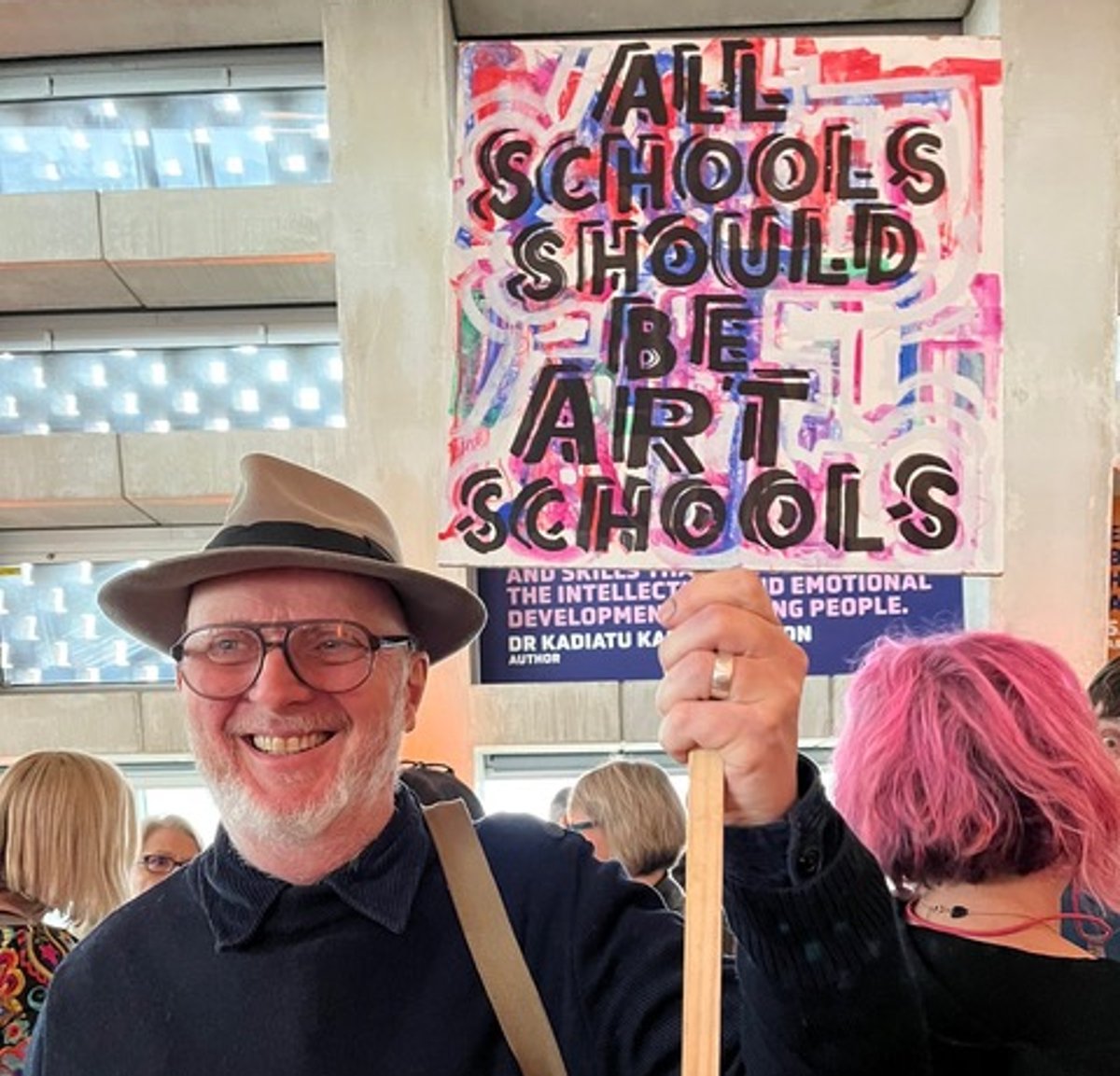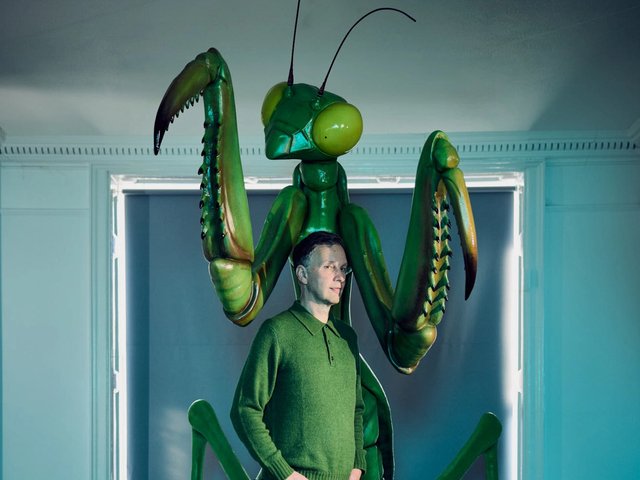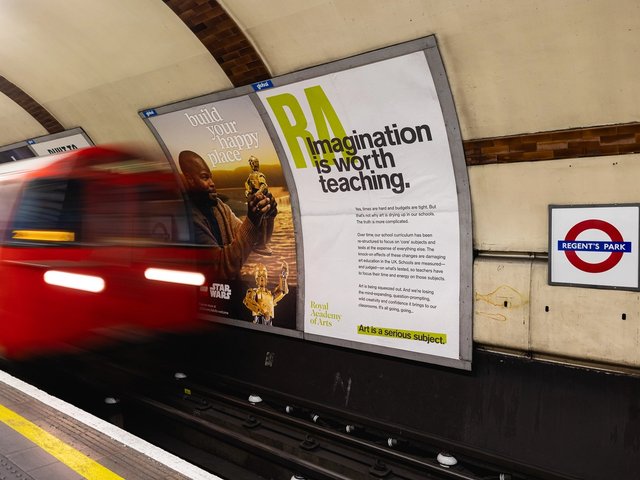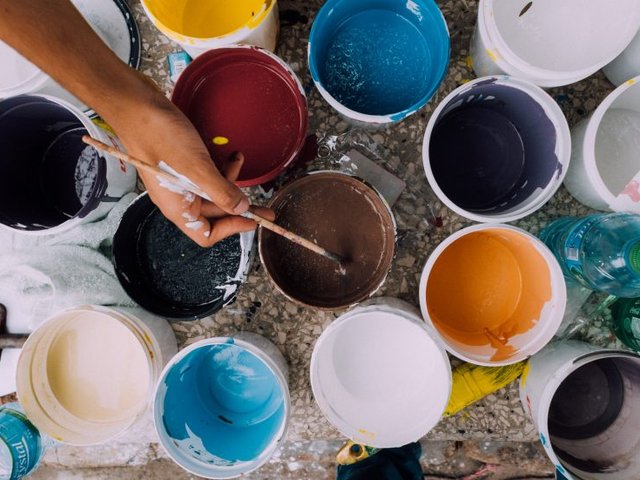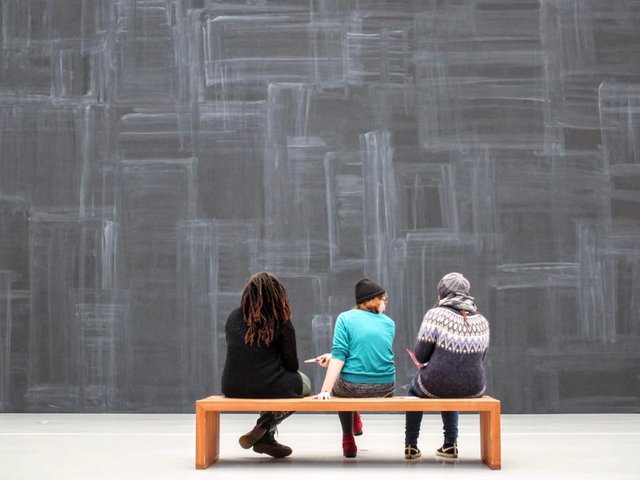A coalition of more than 20 UK organisations have unveiled a campaign seeking to put arts subjects at the heart of teaching at British schools. It is the first major movement of its kind since last year’s general election.
The campaign, Arts and Minds, is led by the National Education Union (NEU) and organised together with national institutions including Artists Union England (AUE) and Black Lives in Music. It is supported by ambassadors including the artists Sarah Graham, Bob and Roberta Smith and Helen Cammock, who won the 2019 Turner Prize.
Speaking at a launch event at Tate Modern yesterday (11 February), where he was joined by senior figures from the Musicians Union, the National Education Union among others, Smith told The Art Newspaper said he wants to see a radical overhaul of art teaching. This includes, he says, an end to the EBacc—an alternative exam sat by many UK students at 16 but which excludes arts subjects. “We are betraying our intelligence if we don’t ditch the EBacc,” he said.
Brandishing a homemade wooden placard reading “All Schools Are Art Schools”, Smith, who once stood against former schools minister Michael Gove as a candidate for the constituency of Surrey Heath, stressed the need for greater government support for arts subjects. These subjects, he recalled, had been undervalued by the previous administration, which once said that “the arts held children back”.
In addition to greater financial support for state schools, many of which are unable to offer all of art and design, dance, drama and music as subjects, Smith also said he was was keen to see “proper funding for local and regional museums so local councils don’t pressure them to sell [art] collections”.
What is the state of arts education in the UK?
According to new research conducted for Arts and Minds by WeThink/Omnisis, participation in arts subjects at GCSE level has fallen by 42% over the last 15 years.
Polling also found that 90% of students have a preference for taking at least one creative option at GCSE yet are unable to do so because funding constraints limit what state schools are able to offer.
This appears to be backed up by new findings from the survey platform TeacherTapp, which has found that two thirds of school leaders say they do not have the budget or facilities of offer a full range of arts subjects.
Sarah Kilpatrick, the president of the National Education Union (NEU) who has been teaching art for almost 20 years, says the children she works with in the north east of England don’t have access to the arts in the way she had when she began her career.
“I have witnessed the systematic decimation of the arts which has been heartbreaking.”
She recalled the value that previous governments and local authorities had placed on art, recalling how at school she had been the recipient of a bursary so she could join an art trip to Paris. “They even paid for my passport and that lead to me becoming an art teacher 11 years later.”
A new film released by the campaign today highlights a number of students from a range of backgrounds who have found they have skills in art, music and drama.
Mohsin Ahmed, 16, spoke about how discovering he had a talent for painting “helps me in English, maths and science, as well”.
The UK’s secretary of state for culture, media and sport, Lisa Nandy, said at launch: “We’ve seen culture and creativity erased from many of our communities and as a government we are absolutely determined to rebuild that whole eco system.”


